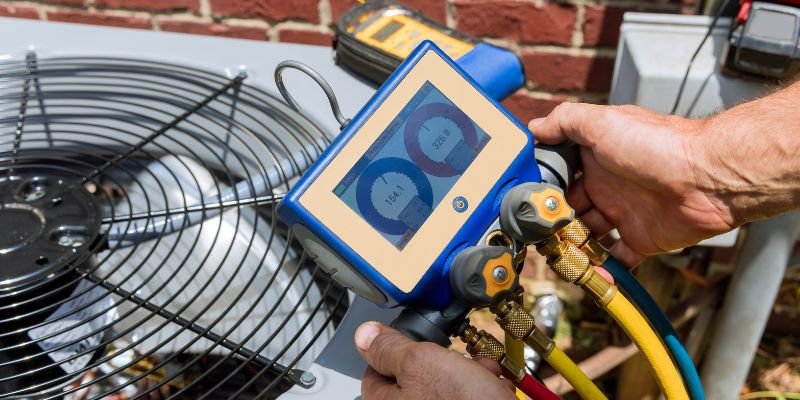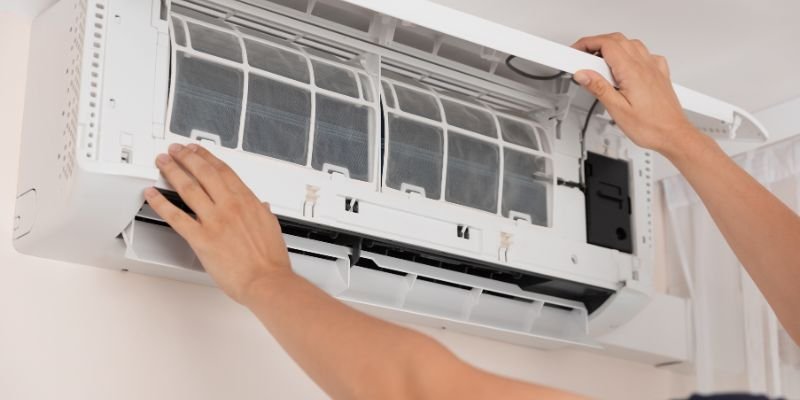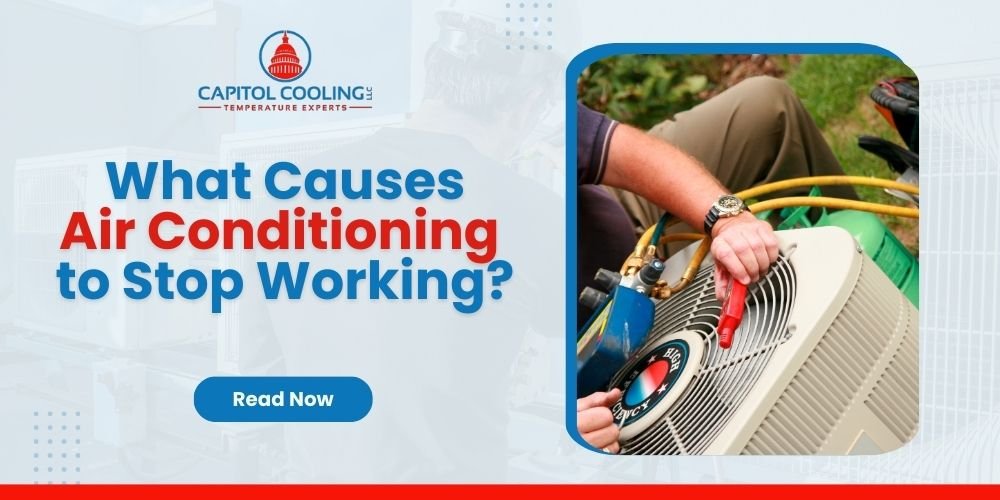Nothing is more frustrating than an air conditioner that doesn’t work on hot summer days. How quickly a broken AC can change a good day into a bad one, bringing lots of discomfort and trouble. From blowing warm air to refusing even to turn on or constantly cycling off and on, these issues are sure to disrupt peace and comfort.
In this blog, we will examine some common reasons why air conditioning units stop working, from warm air output to simply not working and compressor failures, and give practical advice on how to deal with them.
Reasons Why an Air Conditioner May Stop Working

The Unit Blows Out Warm Air
When the air conditioning unit starts to blow warm air, it can mean different problems inside. It usually happens when the system can’t cool the air before sending it around your room or house. A common reason can be a refrigerant leak, which reduces the system’s cooling ability. Another reason might be a dirty air filter that blocks airflow and makes the unit work less efficiently.
Also, if the thermostat has trouble, it might tell the unit to blow warm air instead of cold. First, check and change the air filter to fix this problem. If the issue continues, call a professional to check refrigerant levels and thermostat to ensure they work correctly.
The Unit Won’t Turn On
If an HVAC unit does not turn on, there could be many reasons, all of which must be assessed carefully. It can happen because the circuit breaker trips, which may be restored if the unit draws excessive power. Another reason could be a broken thermostat, which is not sending the proper signal to start the unit.
Also, it will not begin functioning if there is a blocked air filter or an internal issue like a damaged capacitor. In this respect, ensure the circuit breaker is reset if it tripped. Secondly, confirm the thermostat to ensure it works at the right temperature setting and mode.
The Compressor Fails
The compressor is an integral part of the air conditioning system, and if it stops working, the whole cooling process can also stop. There are many reasons why a compressor might fail. A usual cause is insufficient lubrication, which causes too much friction and, eventually, failure. Problems with electricity, like bad wiring or power spikes, can also harm the compressor.
Moreover, issues with the refrigerant, like too much or leaks, can make the compressor get too hot and stop working. Blockages inside the system that slow down refrigerant movement can also damage the compressor. It is imperative to do a regular check, which includes checking refrigerant levels and ensuring all parts are correctly lubricated.
The Unit Continuously Cycles On and Off
If your air conditioner keeps turning off and on continuously, sometimes it would mean you are in for much annoyance and potentially setting yourself up for system damage. This short cycling problem may result from several issues, including an incorrectly sized unit, malfunctioning thermostat, or refrigerant problems.
If the unit is oversized for the space it will excessively cool the space and then shut off far too early to restart shortly after. A faulty thermostat can provide a false reading of the temperature, which then causes the unit to keep turning on and off. Further, erratic cooling cycles might occur at low levels and leaks at the refrigerant levels.
Tips To Make Your Air Conditioner Long-Lasting

- Schedule Annual Tune-Ups: Regular professional inspections can identify and fix minor issues before they become major ones, ensuring that your AC unit is always running efficiently.
- Clean or Replace Filters Monthly: A clean air filter will not allow restriction in air flow, thereby minimizing the load on your system and enhancing indoor air quality.
- Coils Inspection and Cleaning: Dirty coils can cause the system to overheat and might require replacing the whole system, so it’s essential to keep coil cleaning regularly.
- Check your Thermostat Settings: Ensure your thermostat is working correctly and set to the proper temperature so the unit does not need to work harder than necessary.
- Remove Debris from Around the Unit: Keep leaves, dirt, and other debris away from the outdoor unit to ensure enough air can reach it for correct operation without causing overheating.
- Seal Ducts: Effectively sealed ducts will avoid air leaks, enhancing efficiency and reducing the workload for your AC.
Conclusion
Several factors may stop your air conditioner from working: warm air issuing out of the vents, a unit that doesn’t turn on, a non-operating compressor, and short cycling. Most of these can be avoided by cleaning filters and coils regularly, checking refrigerant levels, and ensuring proper thermostat settings. Consult a professional if you have persistent issues. Bookmark this and repost it as a helpful resource for keeping your friends and family’s AC units in top working order. For professional, trustworthy service, contact Capitol Cooling for all your HVAC needs.



